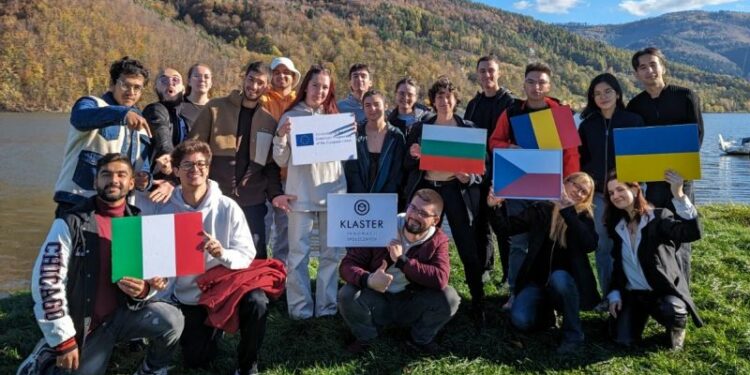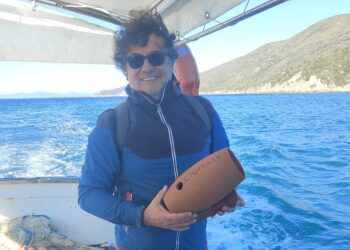“Lo sviluppo sostenibile è lo sviluppo che soddisfa i bisogni del presente senza compromettere la capacità delle generazioni future di soddisfare i propri”
Siamo lieti di iniziare questa interessante sinergia con il giovane team di easysustainabilityngo.org
Iscrivetevi gratuitamente alla newsletter su LinkedIn >>> www.linkedin.com/newsletters/7023222217094103040/

EASYSUSTAINABILITY NEWSLETTER – APRIL 2024
Green Claim Directives: Stricter regulations on environmental claims
In a recent development, the European Parliament has taken a significant step towards ensuring transparency and reliability in environmental claims made by businesses. The proposed directive aims to address the proliferation of vague or misleading green claims in consumer practices.
Under these new regulations, companies will be required to substantiate their environmental claims with evidence and adhere to stricter rules regarding sustainability labels. This move comes in response to a study revealing that a substantial portion of green claims in the EU lack proper substantiation. The proposed directive emphasizes the importance of independent verification and scientific evidence to support green claims. Additionally, faster verification processes will be available for more common claims, streamlining the process for both businesses and consumers.
Cyrus Engerer, rapporteur of Parliament’s Environment Committee, highlights the importance of this initiative in combatting greenwashing and empowering consumers to make informed choices. By ensuring that green claims are scientifically validated, businesses will be equipped to embrace genuine sustainability practices, meeting the growing demand for environmentally conscious products and services in the European market.
Climate Disclosure: SEC’s New rules impact business reporting
In a pivotal decision, the Securities and Exchange Commission (SEC) has approved new climate risk disclosure rules, representing a significant shift in how companies communicate their environmental impact to investors and the public.
The rules mandate companies to disclose information about their emissions and assess how climate change could affect their bottom lines. However, some climate advocates argue that the rules were watered down after facing scrutiny from business leaders. Despite this, many believe that the rules serve as a potential wake-up call for investors to acknowledge the financial risks linked to with climate change.
The finalized rules, approved by commissioners in a 3-2 vote, will require large public companies to disclose certain aspects of their carbon footprints and explain how climate change could jeopardize various aspects of their businesses. The rules have been revised from earlier drafts, meaning that fewer companies need to comply, and most indirect carbon emissions are exempt from disclosure.
Cynthia Hanawalt, Director of Climate Finance and Regulation at Columbia University’s Sabin Center for Climate Change Law, believes these rules could help to combat greenwashing, establish a common standard for disclosures, and promote transparency among large companies. Despite the revisions, the rules represent a significant shift in how climate change is perceived in the business world, moving from a moral and social issue to a recognized economic and financial risk. However, there are still limitations. For instance, Scope 3 emissions are excluded, even though they could make up a significant portion of a company’s total emissions. Although only large companies will initially need to disclose this information, the regulations are expected to set a new standard for climate risk disclosure globally. SEC Chair Gary Gensler believes these disclosures will help prevent greenwashing and ensure companies manage their climate targets and emissions goals effectively.
As these challenges unfold, it’s clear that the SEC’s new climate disclosure rules will have far-reaching implications for businesses, investors, and the broader financial landscape.

EU Parliament approves Nature Restoration Law despite conservative opposition
The European Parliament has approved the Nature Restoration Law, defying conservative resistance and securing a significant victory for biodiversity preservation and climate protection in the EU.
The law, which received 329 votes in favour, 275 against, and 24 abstentions, marks a decisive step towards rehabilitating at least 20% of the European Union’s land and sea areas by 2030 and restoring all degraded ecosystems by 2050.
Despite facing heavy opposition and undergoing substantial changes during negotiations, the law aims to reverse environmental damage caused by climate change and human activity. It requires large public companies to disclose certain aspects of their carbon footprints and outline how climate change could jeopardize various aspects of their businesses.
Conservative factions, such as the European People’s Party (EPP), opposed the law, fearing its impact on European farmers and supply chains. However, these arguments were strongly contested by left-wing groups, the European Commission, thousands of climate scientists, and numerous NGOs and businesses, all of whom emphasized the importance of restoring nature for long-term sustainability.
The law’s survival represents a temporary break to the EU’s broader environmental agenda, which has faced mounting pressure from various sectors. As the political landscape continues to evolve, the fate of environmental legislation remains uncertain.

EU’s 8th Environment Action Programme Mid-Term Review: Progress towards 2030 Goals
In a recent mid-term review, the European Union’s 8th Environment Action Programme (EAP) has shown promising progress towards its 2030 climate and environmental targets, as outlined in the European Green Deal. However, faster progress is required to meet the 2030 target of reducing emissions by at least 55% and achieving climate neutrality by 2050. The recent mid-term review highlights significant strides in climate change mitigation and adaptation. Climate change is having a growing impact on ecosystems, socio-economic sectors, and public health. This highlights the need to address climate risks urgently. The European Commission has taken action to manage climate risks in Europe to safeguard both people and prosperity.
Efforts to transition to a circular economy have seen some success, but there is still significant room for improvement, especially in reducing nutrient losses into groundwater and transitioning to sustainable materials.
While progress has been made in biodiversity conservation, the decline in populations of common birds and pollinators highlights the need for urgent action. Water scarcity and land take remain significant challenges, with vulnerable groups disproportionately affected by environmental hazards and health risks. As the EU continues its journey towards a greener and more sustainable future, it is essential to maintain momentum and implement robust policies to address the pressing environmental challenges ahead.

Upcoming Events:
1. Beyond the Shores: How the Maritime Sector is Preparing for a Sustainable Future?” The webinar, in collaboration with Atrium Environmental, is scheduled for April 25, 2024, 7:00pm CET, and will feature Dr. Anna Canning as the main speaker. The event will focus on the maritime sector’s sustainability, and aims to uncover the challenges, opportunities and solutions driving positive change.
Registration Link: https://www.linkedin.com/events/beyondtheshores7178320615416750082/

IMPORTANTE COMUNICAZIONE DI EASYSUSTAINABILITY
Diffidate delle persone che affermano falsamente di essere i decisori di Easysustainability. Solo i soci ufficialmente registrati (associati), in possesso di un’autorizzazione scritta da parte del consiglio direttivo e/o dell’assemblea degli associati, sono autorizzati a rappresentare Easysustainability, a firmare partnership, contratti o a svolgere attività simili. Qualsiasi attività non autorizzata da parte di membri non registrati è considerata non valida. Se sospetti che qualcuno stia rappresentando impropriamente Easysustainability, contattaci allìemail Admin@easysustainabilityngo.org e segnala qualsiasi attività sospetta. Inoltre, l’uso del nostro marchio o delle nostre referenze in un curriculum o in un profilo LinkedIn è valido solo con un certificato ufficiale di completamento con successo di un progetto o referenze firmate dal presidente. Le comunicazioni ufficiali per i partenariati o gli impegni DEVONO provenire da Admin@easysustainabilityngo.org. Grazie per averci aiutato a salvaguardare la nostra organizzazione!
Iscrivetevi gratuitamente sulla newsletter di LinkedIn >>> www.linkedin.com/newsletters/7023222217094103040/











